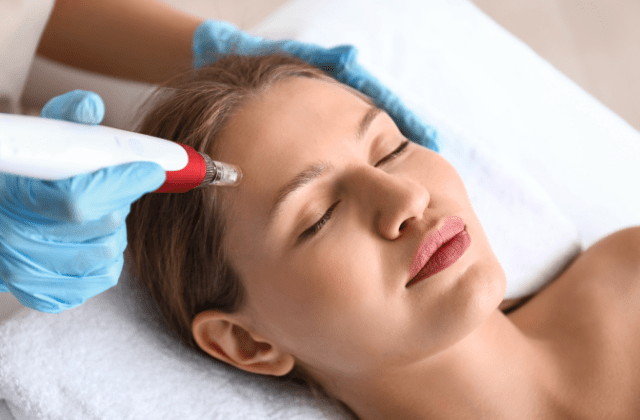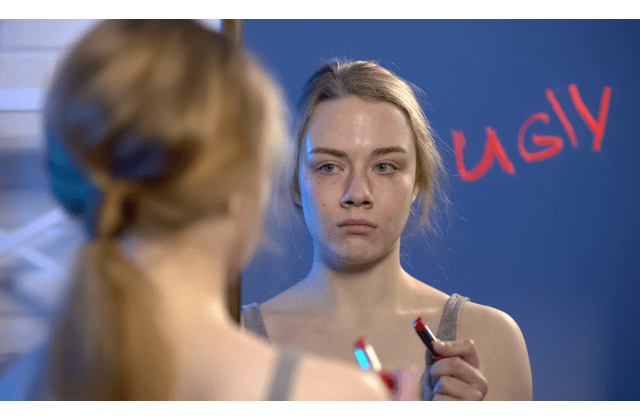Do you seek reassurance about your appearance from others?
Do you pick at your skin or touch your face excessively?
Do you avoid social situations due to your appearance?
Do your concerns about your face interfere with your daily life?
How often do you think about your facial flaws?
Do you try to hide perceived flaws with makeup or accessories?
How do you feel when you look in the mirror?
Do you compare your face to others?
Do you believe your face is ugly or deformed?
Do you believe your facial flaws are noticeable to others?
Have you ever considered cosmetic surgery or procedures?
Do you feel depressed or anxious about your appearance?
Face Dysmorphia Test

Your answers suggest a healthy and positive body image. You are comfortable with your appearance and don't dwell on perceived flaws. You likely have a strong sense of self-esteem and don't let your looks define your worth

Your answers indicate some mild insecurities about your appearance. You might notice things you wish you could change, but these thoughts don't consume you or affect your daily life significantly. It's important to practice self-acceptance and focus on your positive attributes.

Your answers suggest a moderate level of concern about your appearance. You spend considerable time focusing on your perceived flaws, and this can affect your self-esteem and social interactions. It's important to challenge negative thoughts and seek support from loved ones or a therapist.

Your answers indicate a high level of concern about your appearance, which might be indicative of body dysmorphic disorder. You are preoccupied with perceived flaws, and this significantly impacts your daily life and mental well-being. Seeking professional help from a therapist specializing in body dysmorphia is crucial to address these concerns and improve your quality of life.






